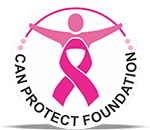Nearly all cervical cancers are caused by human papillomavirus (HPV), a common virus that can be transferred from one person to another during sex. There are several types of HPV. Some HPV types can cause changes on a woman’s cervix that can lead to cervical cancer over time, although other types can cause genital or skin warts.
HPV is so common that most people get it at some time in their lives. HPV generally causes no signs and symptoms so you can’t tell that you have it. For most women, HPV will go away on its own; however, if it does not, there is a chance that over time it may cause cervical cancer.
Other things can maximize your risk of cervical cancer:
- Smoking.
- Using birth control pills for a long time (five or more years).
- Having HIV (the virus that causes AIDS) or another issue that makes it hard for your body to battle off health problems.
- Having given birth to three or more children.
- Having several sexual partners.
